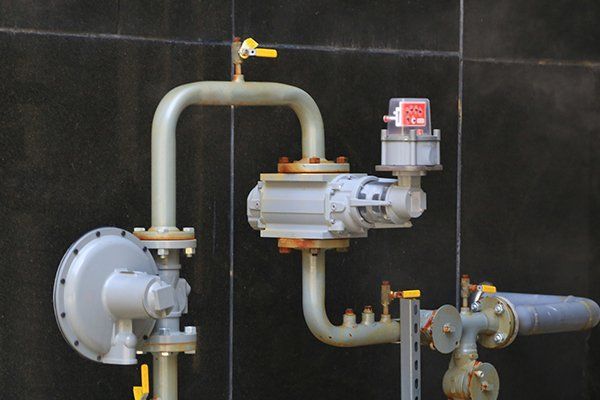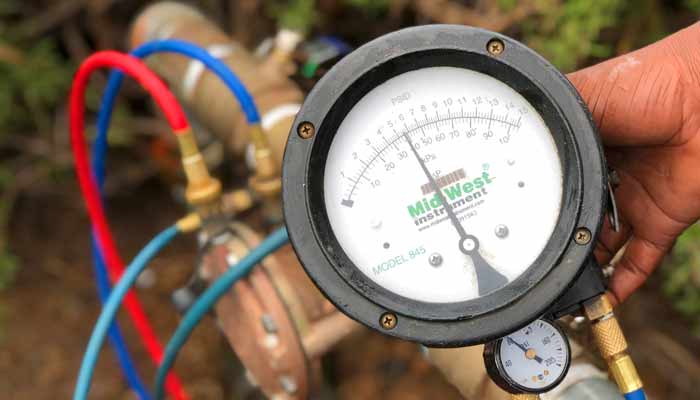In this article in the next paragraph you can locate a good deal of high-quality help and advice around Commercial Backflow Testing.

Yes, you require to backflow test your residence's water system to make sure that the water is free of toxins as well as damaging degrees of chemicals. You must not try to perform backflow testing on your own because of the tools required and space for mistake. We advise that you call an expert plumber every couple of years to test your water.
Heartburn Can Effect Both You as well as Your City
Lots of cities establish backflow guidelines due to the fact that hazardous heartburn can influence the general public water system in addition to a solitary structure. Contemporary cities have backflow tools in location that shield the water supply that comes from a lot of homes and also business residential properties. The actual hazard comes from watering systems, which can hurt the water supply with hazardous plant foods, manure, and also other chemicals.
What Causes Backflow?
A typical cause of heartburn is a loss of water pressure that creates the water to siphon back right into the water supply. After some time, there is a loss in water pressure and also the hose pipe starts to suck the water back into the water supply. As you can picture, there are now chemicals from the paint that are getting in the water supply, potentially posturing a threat.
Heartburn Testing is Needed by Legislation in Specific Cities
Depending on where you live, you might in fact be called for by legislation to backflow examination your law. Iowa City keeps a record of all residential or commercial properties served by the city's water supply.
You Can Avoid Heartburn
Hazardous backflow is quickly avoidable if you have a professional plumber set up a backflow tool. The plumber will certainly also check for heartburn and figure out if there is an active risk. The major function of a heartburn gadget is to avoid water from moving backwards right into your water system. Plumbers mount the tool on the pipes in your residence to make certain that the water only streams in the correct direction.
What is Heartburn?
In short, backflow is when water moves upwards-- the contrary direction in the plumbing system. This is additionally called "backpressure." When the water moves in this instructions, it can mix with unsafe contaminants and pose a danger.
Call a Plumber to Test for Heartburn Prior To It is Too Late
While it might seem grim, contaminated water can cause awful bacterial and viral infections that are hard to deal with. If there are any harmful chemical degrees, a plumbing firm can swiftly evaluate your residence's water to figure out. The small financial investment is if you can avoid the anguish that comes from consuming infected water. And also if you do find that your water has high levels of contaminants, a plumber can conveniently set up a backflow prevention gadget.
Yes, you require to backflow examination your house's water supply to make certain that the water is free of toxins and hazardous levels of chemicals. Numerous cities establish backflow guidelines due to the fact that harmful heartburn can influence the public water supply in addition to a solitary building. A typical cause of heartburn is a loss of water stress that creates the water to siphon back into the water supply. After some time, there is a loss in water pressure and the hose starts to draw the water back right into the water supply. The main objective of a heartburn device is to avoid water from moving in reverse into your water supply.
WHY DOES BACKFLOW TESTING NEED TO BE DONE EVERY YEAR
What Is Backflow?
Toxic gas backing up into a building is one example of potential backflow issues, but backflow can occur in many other ways.
Backflow is generally referred to as the reversal of a liquid or gas in a plumbing system.
Most issues for the public occur with backflow resulting in contaminated drinking water. If you look up backflow issues online you’ll probably find references to “potable” water. That means drinking water.
There have been backflow issues in the past with drinking water. Chemicals, sewage and other contaminants have found their way into drinking water causing health issues for those that count on the fresh water.
What Causes Backflow?
In a residence or commercial building water generally flows one way. This normal flow is usually driven by consistent pressure in the water and waste system.
Anything that changes the normal pressure in the system can lead to backflow.
Fire hydrant use or malfunction can reverse the normal pressure in the system on a city line, but backflow can occur in a number of different ways.
Sometimes backpressure might be caused by someone using a garden hose and submerging the end of the hose in a pool of liquid. If pressure is lost the flow could reverse and contaminants could be released into the drinking water.
Anytime there is a connection between contaminants and the drinking water there is potential for a backflow issue. Sometimes these connections are not immediately obvious like the garden hose connecting to a building’s drinking water supply.
Backflow Regulations
The Environmental Protection Agency (EPA) provides guidelines and regulations for state and local governments regarding backflow. State and local governments also have their own guidelines and regulations for backflow prevention.
Arizona has its own backflow regulations.
Due to issues with backflow in the past, regulations require backflow preventer devices to be used in nearly all residential and commercial buildings.
A backflow preventer is a device that prevents backflow as cross-connection points where potential backflow issues may occur.
While backflow is not a common occurrence, preventers are in place to make sure there is no contamination should something malfunction or go wrong with a building’s water supply.

I discovered that blog posting on What is Backflow Testing? when scouting around the internet. Don't hesitate to take the opportunity to share this blog posting if you liked it. Thanks a lot for your time. Visit us again soon.
Call Today
Comments on “Must I Inspect for Backflow in My Water?”